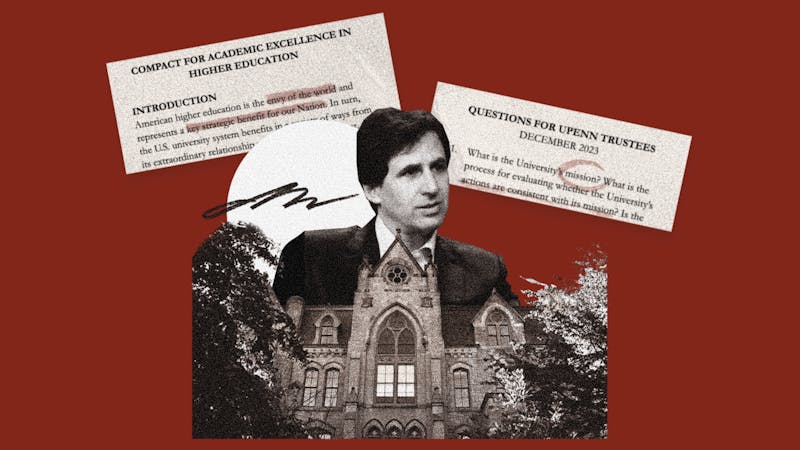
Wharton professor Stew Friedman has been working on his research for the Wharton Work/Life Integration project for the past 2 years. His book focuses on how work and life integration issues, once considered women’s issues are now universal.
Credit: Courtesy of Stewart FriedmanIn 1992, 78 percent of men and women graduating from Wharton planned to have or adopt children. In 2012, that number dropped to 42 percent.
In his new book, “Baby Bust,” Wharton professor Stew Friedman aims to explain this trend. The book, released Tuesday, describes Friedman’s findings from 22 years of research in the Wharton Work/Life Integration Project. The project interviewed the graduating Wharton classes in 1992 and 2012 to find out what their goals were with regard to work and family life.
In the book, Friedman provides ideas that can change the way society, businesses and individuals think about the integration of work and family life. He specifically hopes to spark the conversation among young men, advising them to think about “leaning in” to their family lives by participating more with household and childcare tasks.
When Friedman first started the Wharton Work/Life Integration project, some colleagues would ask him why he was spending his time on a “women’s issue.” His answer is that “traditionally, this has been a women’s issue, and now it’s more of a human’s issue.”
Related: Anne-Marie Slaughter on ‘Why Women Still Can’t Have It All’
One of Friedman’s main findings is that although most Wharton graduates still aspire to be in long-term relationships, fewer now say they want to have a family.
The reasons for this are very different for men and women, Friedman explained.
The survey found that men don’t want children because they are more concerned with their roles in work and economic constraints. Women, on the other hand, would prefer to focus on social impact, health and building friendships instead of building families.
“For some women, the choice not to have children represents liberation from traditional expectations of what a women is supposed to do to be successful in society,” he said.
Related: Wharton study connects marriage and markets
Another factor in the baby bust is an increase in the expected number of hours spent at work — up by 14 hours per week since 1992. Increased work requirements and pressure in careers make it difficult for graduating students to see how they can manage both family and work.
“People are making choices not to be fathers or mothers because it’s too much,” Friedman said.
Outside of the book, Friedman is continuing his work in the Wharton Work/Life Integration Project. He is currently working on spreading the information found in the initial surveys in different ways. One of these projects is the student advisory board Friedman created “as a catalyst for dialogue among men and women.”
Wharton sophomore Leah Davidson is a member of the advisory board. She found that the results of the studies apply to her own life and her own goals.
“I’ve considered what I want in the future,” she said. “I want to find a way to have it all, but I see more and more people wanting that as well. We obviously have to make sacrifices, but there are ways to make it work.”
Related: Working Women Around the World panel discuss breaking barriers
Another member of the advisory board, Wharton freshman Alex Swick, shares similar sentiments. Swick is from a small town in Ohio, where it is expected that people in long-term relationships will have children. Coming to Penn, it was a “culture shock,” he said.
“Coming to the East Coast, everyone avoids the topic [of having children]. Everyone talks about their jobs.” Swick said. For him, however, “getting married and being a supportive husband and father is a big goal.” He added that he would not mind being a stay-at-home dad.
Friedman himself recounted a story in which he asked the students in his class what their dream jobs would be. “One young man said to be a stay-at-home dad. That never would have been said in 1987. The conversation is changing.”
The Daily Pennsylvanian is an independent, student-run newspaper. Please consider making a donation to support the coverage that shapes the University. Your generosity ensures a future of strong journalism at Penn.
DonatePlease note All comments are eligible for publication in The Daily Pennsylvanian.







